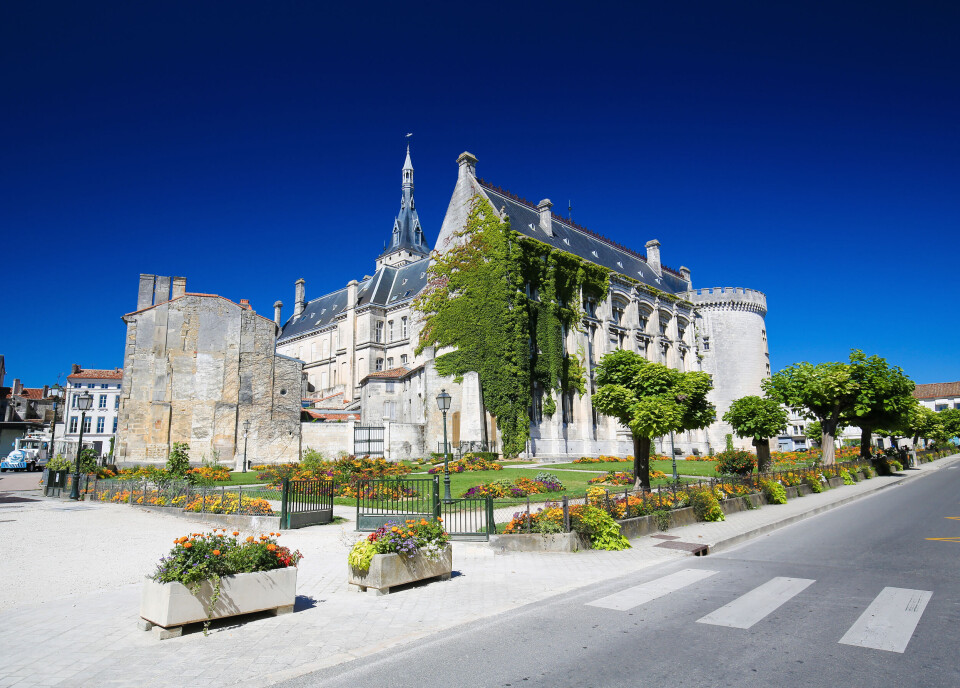-
Death of right-wing protester in Lyon sparks fears of further political violence
Quentin D, 23, died after reportedly being ambushed by far-left activists near site of political conference
-
Red flood alerts continue in south-west - and more heavy rain expected
Garonne river is particularly affected. French weekly weather forecast February 16 - 20
-
Car insurance fees set to rise - tips on how to make savings
Premiums are forecast to rise by four to six percent in 2026
Controversial ban on public sitting in French town partially suspended
A court said restrictions on sitting or lying in public spaces in Angoulême represented ‘a disproportionate infringement of freedom’

A ban on sitting or lying down in public areas in a town in western France has been partially suspended after a local court judged that it was too much of an attack on individual freedoms.
The mayor of Angoulême (Charente), Xavier Bonnefont, issued a decree on July 11, banning people from sitting or lying down in public spaces as a way to reduce public drinking and nuisance, and create a “calmer public space”, he said.
The decree banned “sitting or lying down when it constitutes an obstacle to pedestrian traffic and access to buildings bordering public thoroughfares, as well as standing when it hinders the movement of people, the ease of passage or safety in public thoroughfares and spaces”.
The fine for non-compliance was €35.
However, critics said the mayor was aiming to clear the town of homeless people and travellers, and said the decree was an attack on individual freedoms.
One local, Cédric Larré, said at the time that the decree had left him almost speechless. He said: “The Mairie wants to move us on even though we’re doing nothing wrong.”
Mr Larré said people he knows - including through homeless associations and squatters - had begun to fear further retributions just for being in the town.
Read more: Controversy as French town bans people sitting or lying down in centre
Deputy mayor Philippe Pousset has denied that the measure was an “anti-begging decree” and said the town’s police officers had dealt with 600 complaints about antisocial behaviour in public spaces over the first six months of the year.
He said that “marginals” with dogs had been causing problems with violence and drug dealing, which had meant that local workers had to be “escorted” from their workplace by police.
The lawyer for the town, Alexandra Aderno, said the antisocial behaviour was causing “an anxious environment” and said that the mayor had the “support of residents and shopkeepers”. She said that the decree covered less than 3% of the town’s area and was not targeting “a type of person”, just “groups of individuals”.
‘Infringement of freedom’
However, the decree has now been “partially suspended” by the administrative court in Poitiers (Vienne). It ruled the ban represented “a disproportionate infringement of freedom of movement, and freedom of assembly, [compared to the] safeguarding public order”.
It said the ban on “staying still while sitting down or lying down” was “too general and not precise enough” to be an acceptable decree.
It also ruled that “the measures imposed were not necessary” in two areas, including outside the SNCF station, where the “disturbance of the peace and good public order” had not occurred.
The court was requested to rule on the decree by 36 citizens and the human rights defence group la Ligue des droits de l’homme (LDH).
The group’s lawyer, Marion Ogier, said the decree was unnecessary and “discriminatory”.
She told Le Figaro: "Many people report the presence of homeless people without mentioning the slightest disturbance. As for disturbances at night, aggressive begging, or public drunkenness, all these offences are already punishable under the penal code.”
A local left-wing minister, Raphaël Manzanas - who was among the 36 residents to bring the case to court - said that the mayor was trying to “penalise a way of life [and] protect the image of the commune”, but that it had backfired.
“The town has been mocked and ridiculed”, he said. “This is clearly a bad thing for the town and its image.” He added that public security was the police’s responsibility, and said that the decree represented “unacceptable coercion of democracy in one part of the population”.
Responding to claims from the mayor’s office that other towns, including La Couronne, had brought in similar decrees without opposition, he said: “That mayor [Jean-François Dauré] was attacking drug dealing spaces, not homeless people or travellers.”
The decree in Angoulême is now set to be examined in more detail by the administrative court in Poitiers in the next few months.
Read also
Controversy as French town bans people sitting or lying down in centre
Normandy city takes hard line on public drunkenness
























